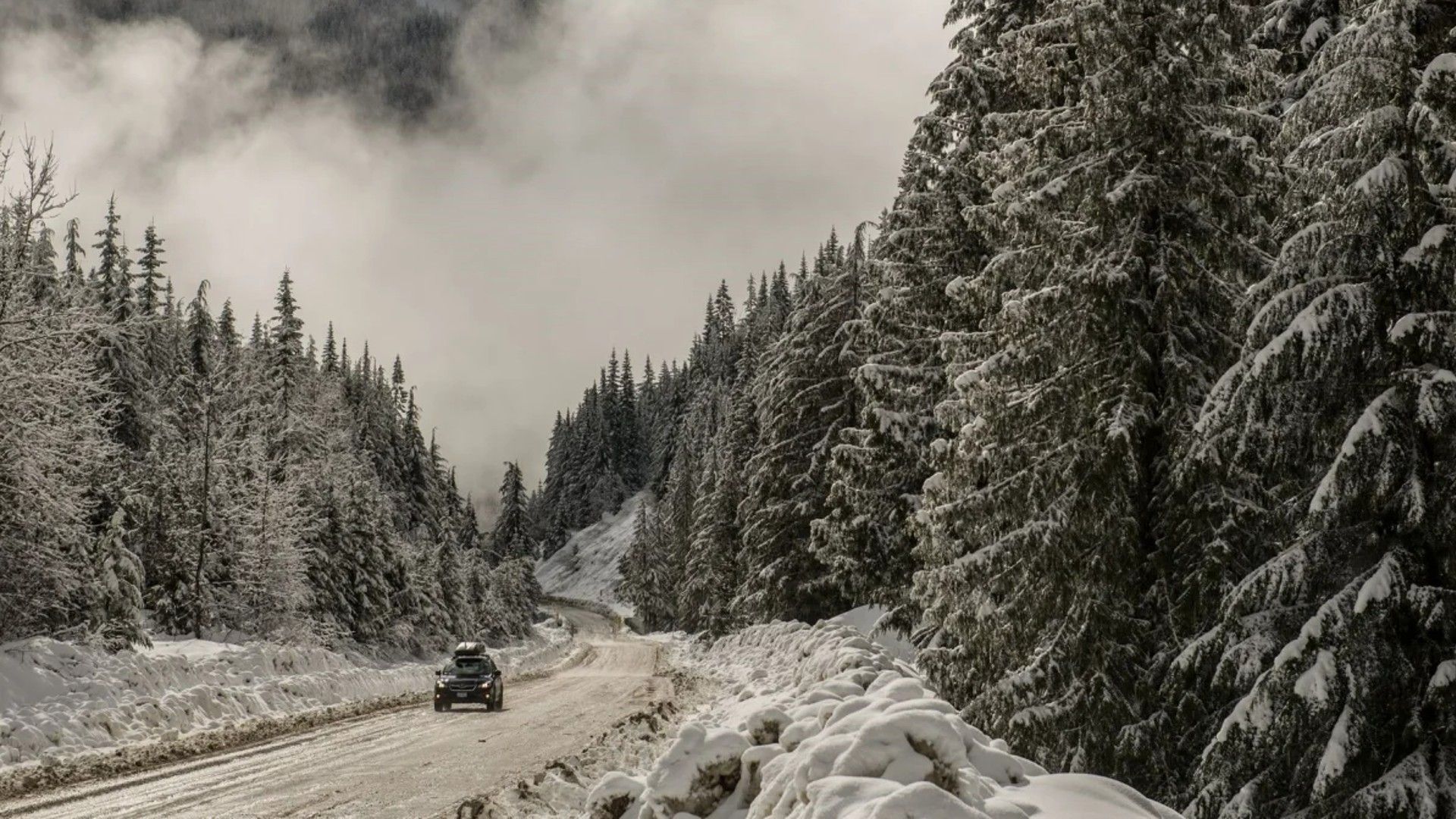While Osoyoos is known for its great weather, high temperatures and lake-side atmosphere, during the winter months, it can see quite a bit of snow, ice and cold — along with the surrounding areas, highways and mountain passes!
If you are planning a winter getaway to Osoyoos, then it is important to be prepared for the conditions you might face.
All major routes that access the South Okanagan, whether it be via Highway 3, Highway 97, the Coquihalla or another way, can present challenges on the road this season.
Make sure you take the necessary steps to keep yourself and others safe on the road. Here’s how to prepare your vehicle, yourself, and what you need to know before you go.
PREPARE YOUR VEHICLE

Here are some tips to help your vehicle is equipped and you’re ready for safe adventures in BC this winter.
- Install winter tires. Use four matched winter tires that carry the three-peaked mountain and snowflake
 symbol and with tread no less than 3.5 mm – even when driving a 4 X 4 vehicle.
symbol and with tread no less than 3.5 mm – even when driving a 4 X 4 vehicle. - Tires marked with an M+S (Mud and Snow)
 are also legally acceptable but do not provide the same degree of performance as a mountain snowflake tire in winter conditions.
are also legally acceptable but do not provide the same degree of performance as a mountain snowflake tire in winter conditions. - Winter tires or chains are required on most routes in British Columbia from October 1 to March 31 each year. For select highways, including mountain passes and rural routes in high snowfall areas, the date is extended until April 30 to account for early-spring snowfall.
- Winter tires improve driving safety by providing better traction in snow, slush and icy conditions.
- Get your car winter ready with a preseason maintenance checkup.
- Be prepared by packing a winter emergency kit. Recommended items can be found here.
- Clear all snow and ice from all windows, lights, mirrors, hood and the roof. After starting your vehicle, wait for the window to defrost completely to allow clear visibility all around.
- If you have a cell phone, make sure it’s charged and bring it with you. A car charger for the phone is a smart device to have on hand.
PREPARE YOURSELF

Know how to drive for the conditions before you get behind the wheel.
- Be mindful of your speed and slow down to match road conditions. Remember, the posted speed limit is the maximum speed under ideal driving conditions.
- Maintain a safe following distance. Look ahead and keep at least four seconds of distance between you and the vehicle in front.
- Know how to brake safely and get out of a skid.
- Be cautious passing large vehicles, such as trucks, as their tires produce large spray that can reduce your visibility.
- Never pass a plow truck on the right as this is where they discharge snow.
- Improve your driving skills and knowledge by taking the free online webinar: Shift Into Winter: Practical BC Winter Driving Tips.
PLAN AHEAD

A few moments of planning ahead could reduce problems when you are behind the wheel. Reduce stress by planning your route, familiarizing yourself with how to travel safely and responsibly, and read up-to-date travel information. If possible, postpone your plans and avoid driving when road and weather conditions are poor.
- Check weather warnings and road conditions at DriveBC.ca
- Give yourself extra time to get to your destination.
- Select the safest route.
- Tell someone where you’re going and when you expect to arrive.
- If you get stuck, stay with your vehicle.
For more information about how to prepare for driving this winter, visit www.ShiftIntoWinter.ca

